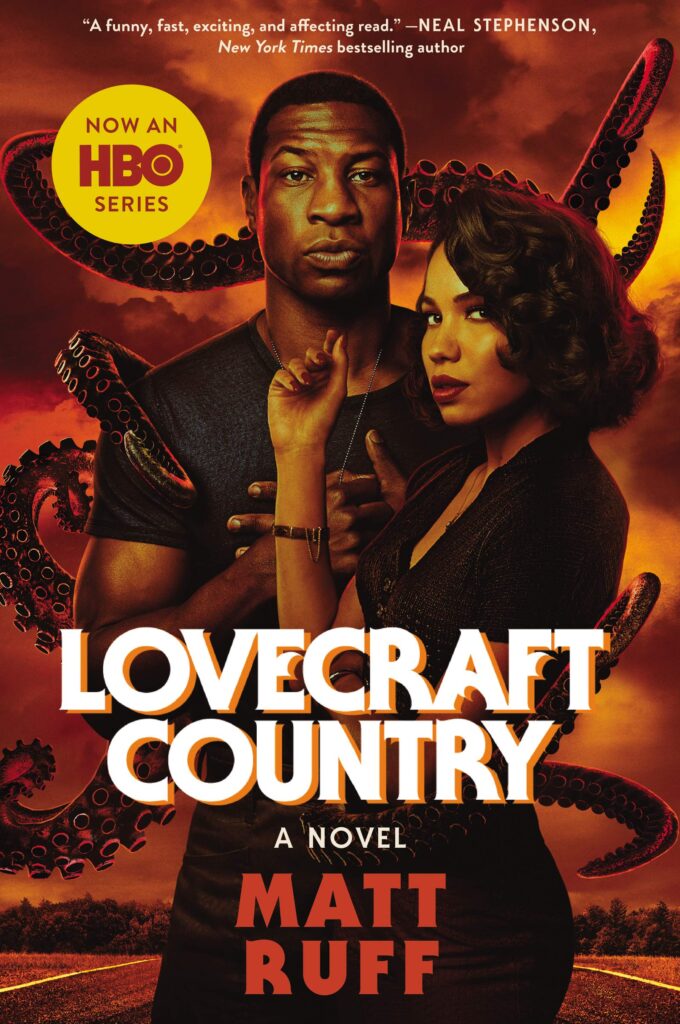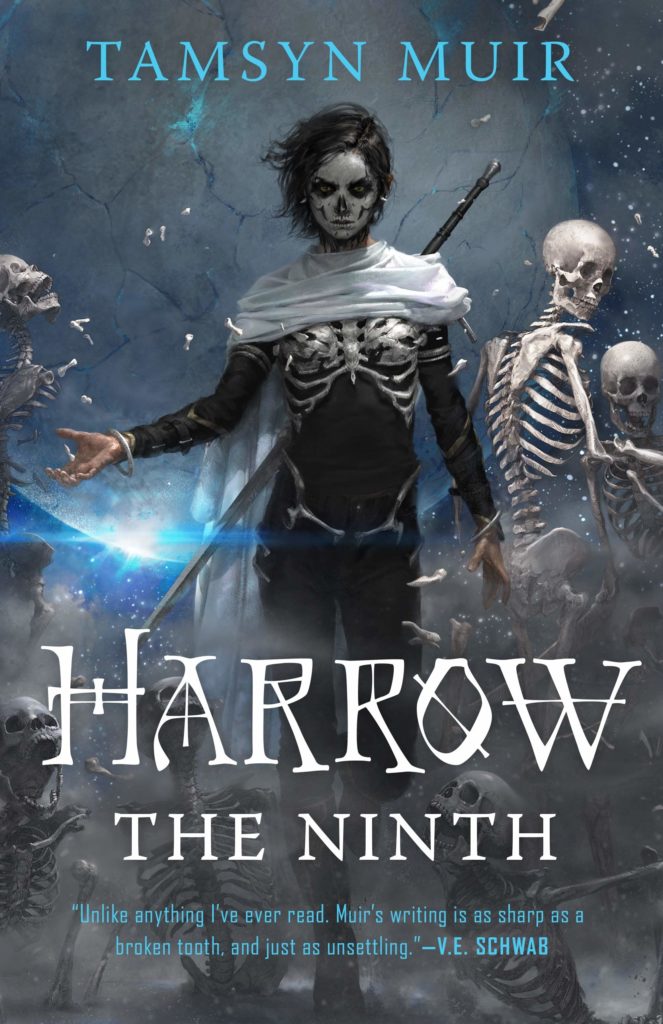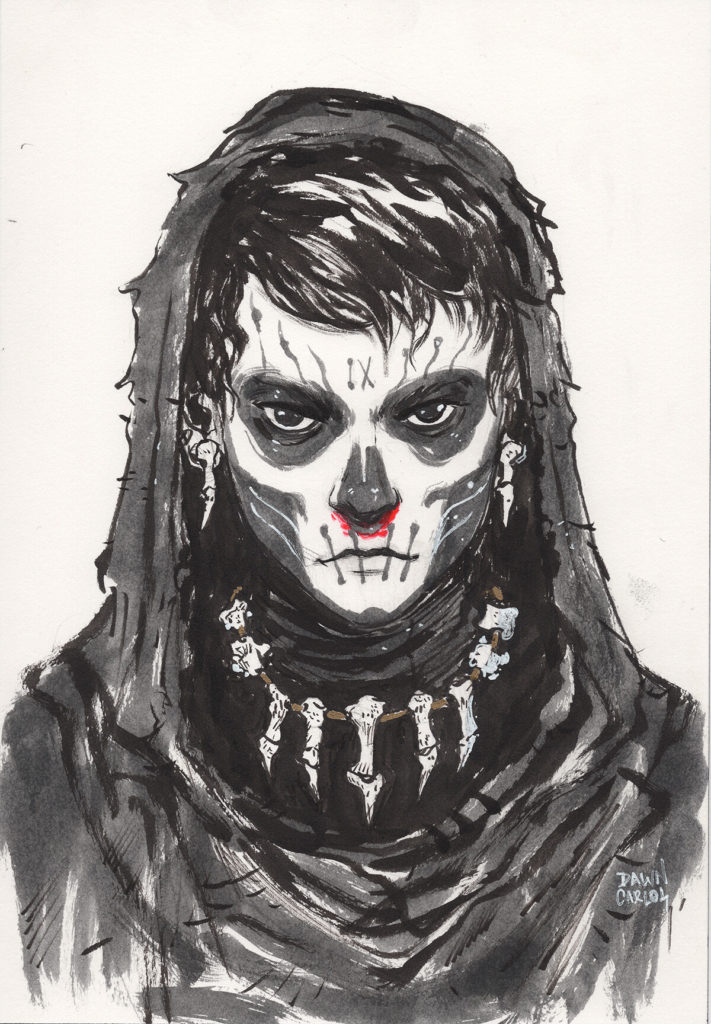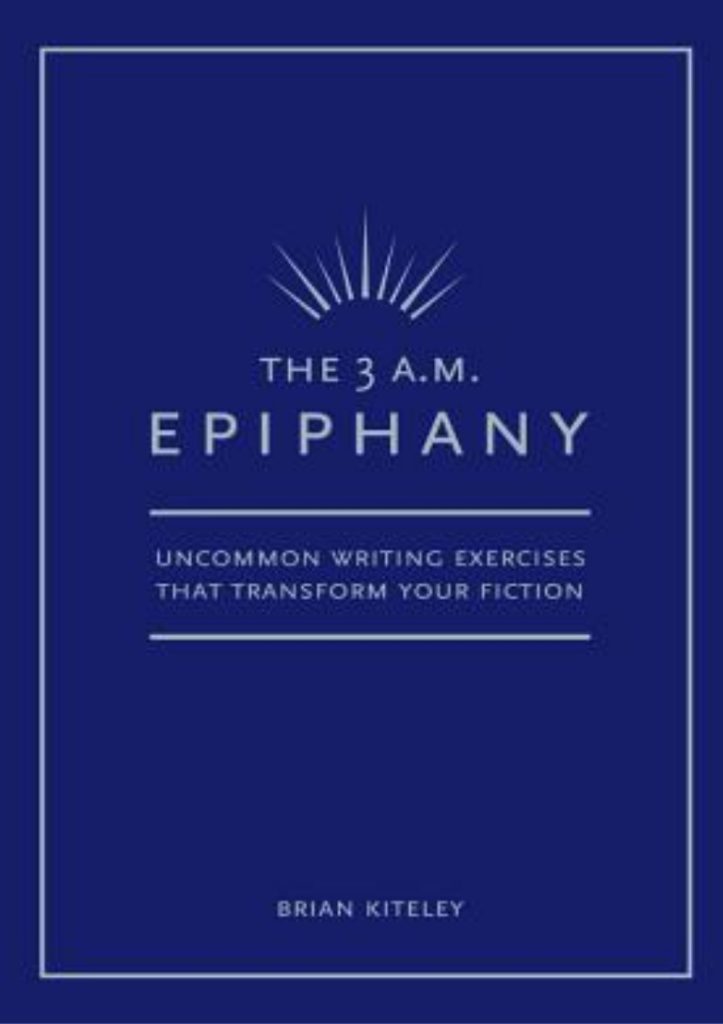Continuing with the exercises from The 3 A.M. Epiphany , today’s pick is Exercise 5, titled Journalism. The idea is to tell a short story through journal entries and try to convey important parts of it in the gaps between what is written. A play on the writer’s perceptions and the reader’s expectations. Which, of course, made me think of Gene Wolfe, and his Seven American Nights, which to this day is one of the best short stories I have ever read. So, without further ado, here is my mediocre tribute to Gene Wolfe.
January 7: I arrived in Reprobation at sunset. It’s a small, shitty place, way out of any trade route that still exists in this blasted wasteland. One of those townships where prospectors gathered back when everyone thought they would strike crystal if they only dug deep enough. And once it was clear this asswipe of a land would rather swallow them up than give anything of value, the dregs remained, too obstinate or too desperate to move.
I got a room in what passes for an inn around here. Too
expensive for what it is. But I think the guy saw the hand cannon and decided I
would want to do this question-free style. He is right.
Everyone is weird. They act almost like normal folk, but then
give me these long looks, like they measure me for a coffin. Doesn’t matter. If
anybody is moron enough to try something, my gun loves making examples.
Moonless night. Reprobation is too quiet. Maybe it’s such a
depressing town that even those whiny murder lizards from the wilds don’t want to be nearby and make
noise. I miss the moons. That was a dumb war.
He is here. And if he isn’t, he sure as fuck passed through,
and someone knows where he went.
January 9: This town has fewer than a 300 people, only one purifier station, no means of long-range communication, and so little high technology that it might as well be from before the diaspora. Yet, some-forsaken-how, it has a church! Because obviously it would. People who stay in places like Reprobation tend to find gods. Or worse – a God, singular. Still, made sense to go there first thing yesterday.
Why do religions with just one dude – and it’s always a dude
– in charge suck so much more ass than those with a merry crowd of drunks and sex
abusers?
This one had three gods, maybe. Or four. Barely any finery.
No icons, just a drab alter and some carvings on the walls. Creepy stuff.
Tentacles and fangs, and big bulging eyes. What fucking religion is this?
A single woman taking care of the whole thing. Priestess. Or
High Bishop, Supreme Wizard, whatever. I guess she told me, but who cares. Weird
like the rest of the township. Stared at me like she wanted to mate with me and
feed my body to her young. And she knew nothing. Which is bad, because it seems
most of this glorified latrine passes through her hovel on whichever day
service is. So either he is hiding better than I thought he could, or she is
lying to me.
Or he passed by so quietly, that nobody noticed.
But he didn’t. Not his style. And a place this small will
notice the corpses.
Still, the day wasn’t a total waste of life. Inn has a bar.
Reprobation has drunks. Drunks love talking. When they don’t love talking, a
hand cannon in the face makes them talk. And mine is fancy. Exo-tech. It
whispers to them, so they get extra scared.
They still looked at me funny, but I guess alcohol loosens
their buttholes a bit. Got some information there. Someone did pass through, a
week ago. They didn’t want to tell me, and I doubt they knew much. I don’t know
if they’re secretive, or unobservant. Perhaps both.
But why would the Grand Hierophantess not want me to know?
Going to check the nearby caves today. Mine didn’t work out,
but tunnels still make great hidey holes. They say people go in there sometimes,
to avoid trouble. If he is still around, that’s where he would go.
Innkeeper looks like he will try to go through my things
while I’m gone. If he hasn’t already. Doesn’t matter, everything I care about
is in the holster at my hip.
And maybe the nearby caves.
January ???: I don’t know
Woke up in room how did I get here
Hurts so much but only when I breathe should stop
breathing
I can barely move. Don’t know how I got back to the inn. I am
not sure what happened in the mine. Got shot. Maybe stabbed.
Bitten? Why would that be an option?
I remember noise. Loud. And then something was on me, and I
think I fell. I remember the pain, but nothing after. Was there bulging
eyes?
Don’t know how long I was out, or what day it is. Panicked
real good when I could think straight. No pants and no shirt is fine, but if
they took my hand cannon, I am fucked.
It was fine. Gun was in its holster on the chair. Not
fucked.
Maybe a bit fucked. My side is all bandaged up. Wasn’t
me. Inkeeper guy? The Archpopetress? Fresh bandage too, so they changed it at
least once. Hurts when I breathe. But manageable.
Thank you for the memories, Reprobation, you lizard nutsack.
But also, no memories. What happened in the mine? My
thoughts keep going back to the church for some reason. Who in the endless starless
void worships things with tentacles? This is some fifty-million-years-ago shit.
Must go back to tunnels, but hurts too much. Gotta gather my
strength. Should rest now. Maybe getting feverish.
January 12: I woke up and felt wonderful. The bandages were such a great relief, and I was thankful to the kind soul who had taken such good care of me, nurturing me to good health so quickly. If I ever find who they are, they shall have my love.
I endeavor to leave this place now, for what I seek was not
here. Perhaps I shall abandon this journey and settle down elsewhere. Certainly
far from here, even if Reprobation has proven a worthy township.
This will be my last entry. I leave this journal here, as a
memorial to the life I leave behind, and a promise for a bright, beautiful future
in a distant land.
Do not look for me.













